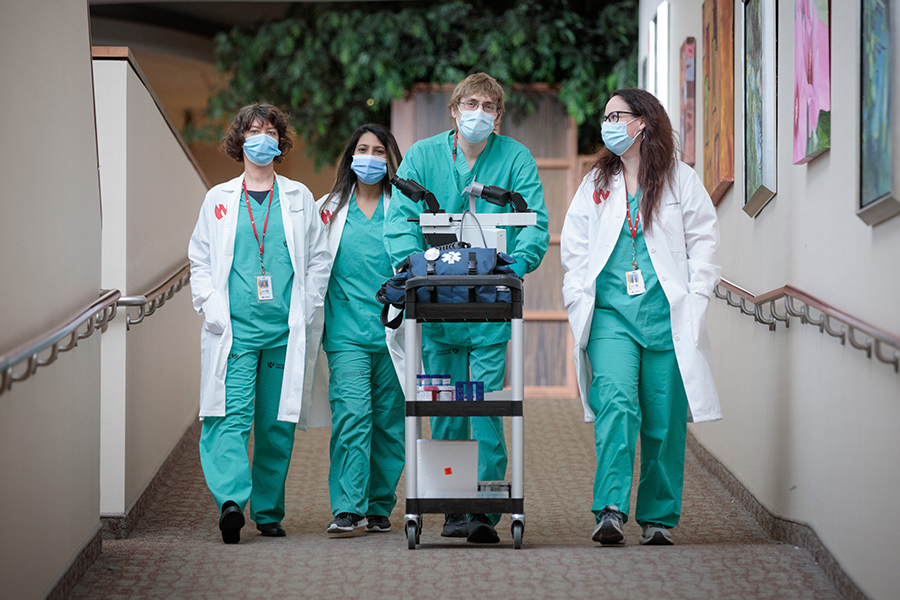Clinical Rotation

Cytology students head to the lab with their mentor.
For Students
Clinical rotation is a transformative phase in a UNMC diagnostic cytology students' journey where didactic learning is put into hands-on practice. During clinical rotation, students will rotate in a variety of laboratory settings, including reference and hospital laboratories, to essentially practice as a working cytologist.
To gain diverse, valuable experiences, it is highly recommended that students rotate through several laboratories. A minimum timeframe of two (2) weeks is recommended at each lab.* The UNMC Diagnostic Cytology program has numerous affiliate laboratories across the country.
Please note that in order to comply with clinical rotation evaluation requirements, students are required to spend time at sites (in addition to their home/satellite site) observing/performing the cytologist role in a FNA procedure. Please consult with your satellite site preference to understand if personal resources (time away from home, finances, etc.) will be necessary for you to meet this requirement.
The financial expense of travel and housing is at the discretion of each student. The Cost of Attendance sheet includes an additional estimated expense for implications of travel and housing for a clinical rotation. Please contact the Financial Aid office if you have any questions.
- Clinical Rotation I (~8 weeks, June-July)
- Clinical Rotation II (~4 weeks, Nov-Dec)
*Note: Affiliate laboratories are not required to take students on a yearly basis. Due to unforeseen circumstances, any one of the sites listed may be unavailable to host students any given year.
For Preceptors
Preceptors are crucial in providing diverse hands-on training opportunities for our University of Nebraska Medical Center Diagnostic Cytology students.
Under preceptor supervision, diagnostic cytology students apply didactic knowledge to screen and diagnose patient slides, prepare cytology specimens, assist with fine-needle aspiration procedures, and acquire knowledge in ancillary departments (FLOW, molecular, IHC, FISH, etc.)
Preceptor Benefits
- Investment in the future of the cytology profession
- Recruitment opportunity for potential employees
Clinical Teaching Resources
Affiliation Guidelines
Guidelines are being developed to serve as a guide and resource for preceptors of University of Nebraska Medical Center Diagnostic Cytology students. Once posted, please review the handbook prior to working with students and refer to it as needed.